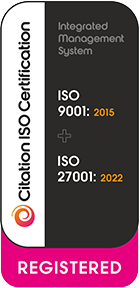Alcohol addiction is complex and varies from person to person. They come in different stages and symptoms, and there are different methods of recovery.
You are not alone in your battle with alcohol, and recovery is possible. Reach out to someone close to you so that they can help you through your journey, and support you when times get hard.
In today’s blog post we will help you to identify which stage of alcohol addiction you may be in, the symptoms you may experience and where you can get the relevant help.
What Is Alcohol Addiction?
Alcohol addiction is a chronic disease where you may find yourself unable to control or stop your drinking despite the negative consequences.
Over time you develop a tolerance to alcohol and you need more to reach the desired effects, and you may experience withdrawal symptoms when alcohol is not in your system.
Alcohol addiction progresses through various stages, starting with stage 1 where you may start binge drinking more than usual, or turning to alcohol to cope with stress.
Whilst alcohol addiction can be difficult to deal with, recovery is possible and it is important to remember that alcohol addiction is a disease and not your fault.
The Stages of Alcohol Addiction
Each stage comes with different psychological and physical symptoms that can cause life-changing harm to your health. But what may you experience in each stage? Let’s take a look:
Stage 1- Pre Alcoholic
This is the first stage that you will find yourself in when developing an alcohol addiction. Most of the time some people don’t even realise their problem.
It starts when you begin to drink a lot more than usual, this usually happens in social settings and that is why you may not realise your problem. Because in society binge drinking is considered normal.
You may also find yourself drinking to alleviate stress or to improve your mood. If you feel you are in this stage, reach out to somebody for help, before your problem progresses into something much worse.
Stage 2- Early Stage
This is the early stage of alcohol addiction, where you may begin to question whether you actually enjoy drinking, or if you have become dependent.
You have begun to drink in secret or have memory blackouts from alcohol.
Family and friends may have begun to notice your problem, and you may be defensive when they bring it up, leading to strain on relationships and you may be becoming a difficult person to be around.
Take back the small grip alcohol has on you in this stage and regain control over your life before the grip begins to tighten and you find it harder to stop.
Stage 3- Middle Stage
This is the stage where you have developed a dependence on alcohol and your family and friends have started to notice.
You begin drinking earlier in the day, such as in the morning, and you have slight withdrawal symptoms when you don’t drink.
Stage 4- Fully Developed Alcoholism
This is the most severe stage of alcohol addiction, and your dependency has developed stronger, and your tolerance to alcohol has increased, meaning you need a lot more alcohol to reach the desired effects.
You may have detached from family and friends, but it is important that you reach out to them so that they can help you.
Physical Symptoms of Alcohol Addiction
Recognising the physical signs and symptoms of alcohol use disorder (AUD) can be difficult, especially in the early stages of dependence. Alcohol can have negative consequences on your physical health over time, manifesting in ways that can often be overlooked. Here are some ways that alcohol can impact you physically:
Health Problems
Some physical warning signs to look out for may include:
- Chronic fatigue
- Disturbed sleep patterns
- Unexplained changes in weight
- Nausea and vomiting
Frequent heavy drinking can also increase the risk of alcohol-related liver disease (liver damage). Alcohol abuse can lead to inflammation and swelling in the liver as well as hepatitis. This can lead to cirrhosis of the liver, which can be very dangerous.
Alcohol consumption is also a carcinogen. This means that drinking alcohol can increase the risk of developing certain types of cancer.
If you are noticing physical changes such as fatigue, trouble sleeping or liver damage and you’re concerned about your drinking habits, we recommend that you seek support. This is something we can help you with at Rehubs.
Increased Tolerance
Another physical sign of alcohol addiction is an increased tolerance to alcohol. This is when you require a larger amount of alcohol to feel the same effects. For example, you may notice that you’re still sober after several drinks, whereas others around you may be visibly intoxicated.
Likewise, you may find yourself drinking more and more alcohol to feel ‘drunk’. Tolerance can quickly develop into a physical dependence, so it’s best to seek help sooner rather than later.
Withdrawal Symptoms
As your addiction progresses, you may find that you begin to experience withdrawal symptoms when you stop drinking. The symptoms may start out a lot stronger, however as time progresses, they will become more mild and manageable.
Some of these withdrawal symptoms can include:
- Tremors (Shaking)
- Anxiety
- Sweating
- Nausea and vomiting
- Headache
- Insomnia
- Irritability
- Increased heart rate
- High blood pressure
- Fever
- Hallucinations
- Mood swings
You may also experience cravings during your withdrawal – you may notice as your withdrawal symptoms start to fade, the craving may still linger.
At this point, it is important to look back on why you started and think about how far you have come in your recovery so far, and remember to never give up.
Psychological and Behavioural Symptoms of Alcohol Addiction
Alcohol can have a significant impact on your mental health. Many people use alcohol as a coping mechanism for negative feelings or sensations. This can create a vicious cycle that can worsen mental health issues.
Likewise, there are some behavioural changes to look out for too – such as binge drinking (when you drink 4 or 5 drinks in one occasion) on a regular basis.
Ultimately, spending a lot of time drinking too much alcohol is a key symptom of addiction. Here are some psychological and behavioural symptoms to look out for:
Changes in Mood
An alcoholic person may become more irritable, and experience mood swings and out-of-character aggression. Likewise, people with alcohol abuse issues may also experience high levels of stress, or mental health issues such as depression and anxiety.
If you think that addiction is impacting your mental health, we recommend consulting with a mental health professional and an addiction specialist.
Impaired Cognitive Function
Alcohol dependence can impair your cognitive function, leading to memory lapses and difficulty concentrating.
At Rehubs, we understand how physical and psychological symptoms can be linked. Our online alcohol rehab services include therapeutic interventions to address these underlying issues, providing you with the tools to overcome psychological hurdles on the path to recovery.
Shift in Priorities
One common behavioural symptom is a noticeable shift in priorities. This means you may become preoccupied with finding and consuming alcohol. You may also neglect your responsibilities, and stop enjoying hobbies you once loved.
As the disorder progresses, it can become more and more difficult to perform well at your job and maintain your relationships and family obligations.
Drinking Alone or at Inappropriate Times
One key sign you may have an alcohol problem is that you drink at inappropriate times – for example, at work or during the morning. You may also drink heavily alone.
Another symptom of alcohol addiction is continuing to drink alcohol the next day after a night of drinking, or simply not stopping your alcohol consumption. You may also continue to consume alcohol alone after drinking with friends or family.
Flick the Switch to Recovery With Rehubs
Here at Rehubs, we offer you the chance to recover from your addiction in the comfort of your own home with the support of your loved ones around you.
Our team of addiction specialists are here to guide you along your journey – and you will have access to your recovery network 24/7 so no matter what time it is, or where you are, when times get hard, we are here.
With 1-1 counselling, group therapy, excellent aftercare, and so much more, Rehubs can help you to become the best version of yourself and make memories with your loved ones, whilst living a life with lifelong abstinence.
Complete your free consultation form today and a member of our team will be in touch. Recovery starts now!
{{ include_custom_fonts({“Poppins”:[“Black”,”Black Italic”,”Bold”,”Bold Italic”,”Extra Bold”,”Extra Bold Italic”,”Extra Light”,”Extra Light Italic”,”Light”,”Light Italic”,”Medium”,”Medium Italic”,”Regular”,”Regular Italic”,”Semi Bold”,”Semi Bold Italic”,”Thin Italic”]}) }}







